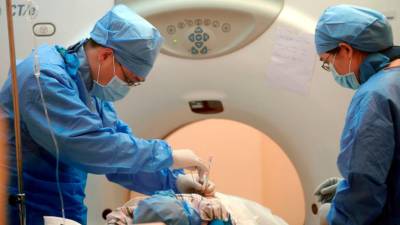THE recent revelation of a doctor’s appalling living conditions in Sabah – after years of battling severe depression brought on by workplace bullying – is, sadly, not as shocking as it ought to be. This is just another troubling reminder of the lack of compassion and empathy within Malaysia’s healthcare sector.
As a society, we seem to revere medical doctors as symbols of intelligence, status and professional success. Yet despite this admiration, kindness is not a trait often associated with doctors in Malaysia – though it should be, especially for those who dedicate their lives to healing.
While doctors are often recognised for their intelligence, intellect alone does not make a good doctor. Compassion, empathy and humanity are equally vital, and when these qualities are lacking, the entire system suffers.
Workplace bullying, particularly among junior doctors in Malaysia, is a widespread issue. A recent scientific study has shed light on just how prevalent this problem truly is.
In 2021, a team of researchers from UiTM, UM and UKM published a study involving 1,074 junior doctors from 12 government hospitals across central Malaysia. They found that one in 10 junior doctors reported being bullied at work – though this figure is likely an underestimation.
Reported forms of bullying included humiliation, ridicule, gossip, verbal abuse and unmanageable workloads – occurring as frequently as weekly or even daily for many doctors.
Why do some in the healthcare sector perpetuate such toxic behaviour towards their juniors? One theory suggests that the power, prestige and respect tied to the medical profession may attract individuals with negative personality traits. For example, teenagers who display narcissistic behaviour or a sense of entitlement may be drawn to high-status professions like medicine in pursuit of admiration.
Studies have linked narcissism in the workplace to bullying but this is likely only part of the problem.
In Malaysian culture, excessive emphasis on seniority and titles can often lead to abusive behaviour being overlooked or normalised. Out of fear of repercussions, few dare to speak up even when they know such behaviour is wrong.
Even when someone does speak up, they may be brushed off due to our tidak apa attitude. Phrases like “we went through this, so you must too” are commonly used to justify workplace bullying while “don’t tarnish the hospital’s reputation” serves to silence potential whistleblowers.
Furthermore, a lack of willingness among those in power to take action against such perpetrators leaves junior doctors disillusioned with a profession meant to promote care and healing.
Emotional intelligence, empathy and compassion are critical in the medical field, yet for some reason these traits are lacking among some medical professionals. Despite the misguided justifications given in an attempt to minimise the impact of workplace bullying, the costs are substantial.
Constant bullying and a harsh working environment can lead to burnout and depression, reducing job performance and leaving a heavy mental, emotional and physical toll on victims.
Ultimately, the healthcare system will lose out on qualified medical professionals who quit due to the pressure exerted on them from workplace bullying. Even those who try to tough it out may end up being hostile and combative due to their toxic workplace.
Ultimately, when doctors are hurting and the healthcare system takes a toll, patients are affected too.
The good news is that this problem can be fixed if everyone does their part. Institutes of higher learning and medical educators need to emphasise the importance of empathy, compassion, communication and humanity. Assessment must include evaluating emotional intelligence alongside academic metrics.
Meanwhile, Health Minister Datuk Seri Dr Dzulkefly Ahmad has promised that new guidelines will be launched in October to curb the use of hurtful or offensive language, which will be classified as a form of workplace bullying, in government hospitals and clinics.
Although the Health Ministry’s online portal for reporting cases of workplace bullying, MyHELP, was launched back in 2022, there must be a strong commitment from the ministry to thoroughly investigate submitted reports and take action against bullies in the healthcare sector.
The healthcare sector is meant to be a safe place not just for patients but for healthcare practitioners as well.
We cannot expect compassionate care from doctors if they, especially the juniors, are subjected to workplace bullying every day. A good doctor should not only be intelligent but also kind to everyone, including peers and subordinates.
As Malaysians, we always consider kindness as one of our biggest strengths. There is no reason why this should not be true of our healthcare
sector as well.
Dr Jazli Aziz is with the Department of Oral and Craniofacial Sciences, Faculty of Dentistry, Universiti Malaya.
Comments: letters@thesundaily.com
